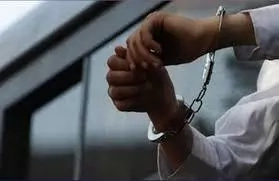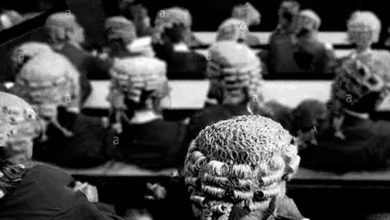Punishment For Offences Of Ordeal, Witchcraft, Juju, Criminal Charms In Nigeria
Offences of ordeal, witchcraft, juju, criminal charms
We live in a deeply religious country. Many Nigerians subscribe to one faith or the other. Thus atheism which is the belief that God does not exist hold only very little allure for a lot of persons unlike in the western world where it counts multiple subscribers in its ranks.
As religion has thrived so has superstition which is the belief that that a particular event happens in a way that cannot be explained by reason or science or the belief that particular events bring good or bad luck.
👉 Relocate to Canada Today!
Live, Study and Work in Canada. No Payment is Required! Hurry Now click here to Apply >> Immigrate to CanadaRead Also: Punishment For Corruption Under Nigerian Law

This belief holds a particularly strong sway on people who believe that malignant forces are always at work to kill or cause them misfortune.
This has not been helped by occurrences which are sometimes mysterious and the proliferation of religious houses which stoke these beliefs in order to draw more people to their patronage.
In the face of this gale of superstition jocularly referred to as “African science,” the law seeks to maintain a most objective stand, in spite of the apparent difficulties.
Witchcraft and juju are by nature subjective; they are mostly what one person professes to have experienced at any given time.
Claims of witchcraft and juju are not easily verifiable by the scrutiny of judicial proceedings, as such , the law distances itself from them.
However, where it is apparent by proof that witchcraft and juju were used to commit crimes against persons or property, the law steps in to punish offenders and protect the society from mysterious machinations.
Read Also: Punishment For Offences Relating To Unlawful Assemblies And Breaches Of Peace In Nigeria
👉 Relocate to Canada Today!
Live, Study and Work in Canada. No Payment is Required! Hurry Now click here to Apply >> Immigrate to CanadaDefinitions of witchcraft and juju
Juju
The 7th Edition of the Oxford Advanced Learner `s Dictionary, International Student`s Edition, at page 132, defines “Juju” thus:
“An object used in West African magic. A type of magic in West Africa.”
At page 1690, Witchcraft in defined as “the use of magic powers especially evil ones.”
The Deluxe Ninth Edition of the Black`s Law Dictionary, at page 1738 says of “Witchcraft”:
“The practices of a witch, especially in black magic sorcery. Under the Witchcraft Act of 1541 and the Witchcraft Act of 1603,witchcraft was a felony punishable by death without benefit of clergy .The last execution in England in witchcraft occurred in 1716.
The Acts were repealed in 1736.In the United States ,the most conspicuous(and nearly the last ) persecution for witchcraft occurred in Salem, Massachussetts , where 19 people were hanged for this offense in 1692 ”
The New International Webster`s Comprehensive Dictionary of the English Language (Deluxe Encyclopedic Edition) at page 691 defines “ Juju ” thus:
“An African fetish or talisman; an object of religious veneration or awe; hence, anything inexplicable ,mysterious or magical; also the charm said to be worked by a juju ”
At page 1446, the Dictionary defines witchcraft as “the practices or powers of witches or wizards; especially when regarded as due to dealings with evil spirits or the devil or; black magic ;sorcery; also an instance of such practices.
Wikepedia describes “juju” thus:
“Juju is a spiritual belief system incorporating objects such as amulets and spells used in religious practice, as part of witchcraft in West Africa. The term has been applied to traditional African religions.
“The term “juju” and practices associated with it travelled to the Americas from West Africa and with the influx of slaves via the Atlantic slave trade and still survives in some areas, particularly among the various groups of Maroons, who have preserved their African traditions.”
The Criminal Code Act proscribes ordeal, witchcraft, juju and criminal charms.
In spite of the wild vagaries in the realm of juju and witchcraft, the law still finds a way to clamp down on those aspects of it can identify and regulate. This attitude of the law explains the provisions of Sections 207,208,209,210,211,212 and 213 of the Criminal Code Act.
Section 207 of the Criminal Code Act proscribes trial by ordeal: prohibited juju.
Read Also: Punishments For Kidnapping Under Nigerian Law
It provides thus:
1. The trial by ordeal of sasswood, esere -bean, or the poison, boiling oil, fire, immersion in water or exposure to the attacks of crocodiles or other wild animals, or by any ordeal which is likely to result in the death of or bodily injury to any party to the proceeding, is unlawful.
2. The President or, as the case may be, the Governor of a State may by order prohibit the worship or invocation of any juju which may appear to him to involve or tend towards the commission of any crime or breach of peace ,or to spread of any infectious or contagious disease.”
Section 208 of the Criminal Code Act proscribes the “Directing, etc. of unlawful trial by ordeal.
“Any person who directs or controls or presides at any trial by ordeal which is unlawful, is guilty of a felony and is liable, when the trial which such person directs , controls or presides at results in the death of any party to the proceeding, to the punishment of death and in every other case ,to imprisonment for ten years.”
Section 209 of the Criminal Code Act proscribes “ Being present at ,or making poison ,for unlawful trial by ordeal.
“Any person who-
a. Is present at or takes part in any trial by ordeal which is unlawful; or
b. Makes, sells or assists or takes part in making or selling, or has in his possession for sale or use any poison or thing which is intended to be used for the purpose of any trial by ordeal which is unlawful, is guilty of a misdemeanor and is liable to imprisonment for one year.
Section 210 of the Criminal Code Act provides the “Offences in relation to witchcraft and juju.”
“Any person who:
a. By his statements or actions represents himself to be a witch or to have the power of witchcraft; or
b. Accuses or threatens to accuse any person with being a witch or with having the power of witchcraft; or
c. Makes or sells or uses, or assists or takes part in making or selling or using or has in his possession or represents himself to be in possession of any juju ,drug or charm which is intended to be used or reported to possess the power to prevent or delay any person from doing an act which such a person has a legal right to do ,or to compel any person to do an act which such person has a legal right to refrain from doing, or which is alleged or reported to possess the power of causing any natural phenomenon or any disease or epidemic; or
d. Directs or controls or presides at or is present at or takes part in the worship or invocation of any juju which is prohibited by an order of the President or the Governor of a State; or
is in possession of or has control over any human remains which are used or are intended to be used in connection with the worship or invocation of any juju; or
makes or uses or assists in making or using ,or has in his possession anything whatsoever the making, use or possession of which has been prohibited by an order as being or believed to be associated with human sacrifice or other unlawful practice, is guilty of misdemeanor and is liable to imprisonment for two year.”
Section 211 of the Criminal Code Act punishes chiefs who permit unlawful ordeal and prohibited juju worship
“Any chief who directly or indirectly permits ,promotes ,encourages or facilitates any trial by ordeal which is unlawful, or the worship or invocation of any juju which has been prohibited by an order ,or who knowing of such trial, worship or invocation ,or intended trial, worship or invocation, does not forthwith report the same to an administrative officer, is guilty of a felony and is liable to imprisonment for three years. The offender cannot be arrested without warrant.”
Read Also: Punishment For Forgery Under Nigerian Law
Section 212 of the Criminal Code Act provides for the destruction of place where unlawful ordeal or prohibited juju worship is held.
“Any house ,grove or place in which it has been customary to hold any trial by ordeal which is unlawful, or the worship or invocation of any juju which is prohibited by an order ,may, together with all articles found therein, be destroyed or erased upon the order of any court by such persons as the court may direct.”
Section 213 of the Criminal Code Act forbids the use of Criminal charms.
“Any person who:
a. makes, sells or keeps for sale or for hire or reward, any fetish or charm which is pretended or reputed to possess power to protect burglars, robbers, thieves or other malefactors, or to aid or assist in any way in the perpetration of any burglary, housebreaking, robbery or theft, or in the perpetration of any offence whatsoever, or to prevent, hinder or delay the detection of or conviction for any offence whatsoever; or
b. is found having in possession without lawful and reasonable excuse (the proof of which excuse shall lie on such person) any such fetish or charm as aforesaid is guilty of a felony and is liable to imprisonment for five years.
The Penal Code Act forbids the offences relating to Ordeal, Witchcraft and Juju and criminal charms in sections 214,215,216 and 217.
While the law does not like the wildly subjective nature of witchcraft and juju,it does not fail to play its role where juju or witchcraft has been used to procure the harm or death of a person.
Highlights
a. A misdemeanor is a crime that is not considered to be very serious. It is usually punishable by fine, penalty, forfeiture, or confinement usually for a brief time in a place other than a prison.
b. A felony is a serious crime usually punishable by imprisonment for more than a year or by death. Examples include burglary, arson, rape, and murder.
c. Section 209 of the Criminal Code Act punishes those who are present at or make poison for a trial by ordeal with an imprisonment for one year.
d. Section 208 punishes anyone who directs or presides over a trial by ordeal as a felon and punishes it with ten years. When it results in the death of any person, the death penalty will apply.
e. Offences in relation to witchcraft and juju are misdemeanors punishable with two years imprisonment under Section 210 of the Criminal Code Act.
f. Any body who deals in criminal charms is guilt of a felony and liable to imprisonment for five years under Section 213 of the Criminal Code Act.
Read Also: Punishment For Impersonation Under Nigerian Criminal Law
Always Remember:
a. That as a Nigerian citizen under Sections 25,26 or 27 of the 1999 Constitution, your fundamental rights are guaranteed under Sections 33 to 46 of the same Constitution.
b. That the Constitution guarantees you equal rights, obligations, opportunities and easy accessibility to court under Section 17.
c. That com works with a team of lawyers to inform you of your rights, obligations and opportunities under the law.






